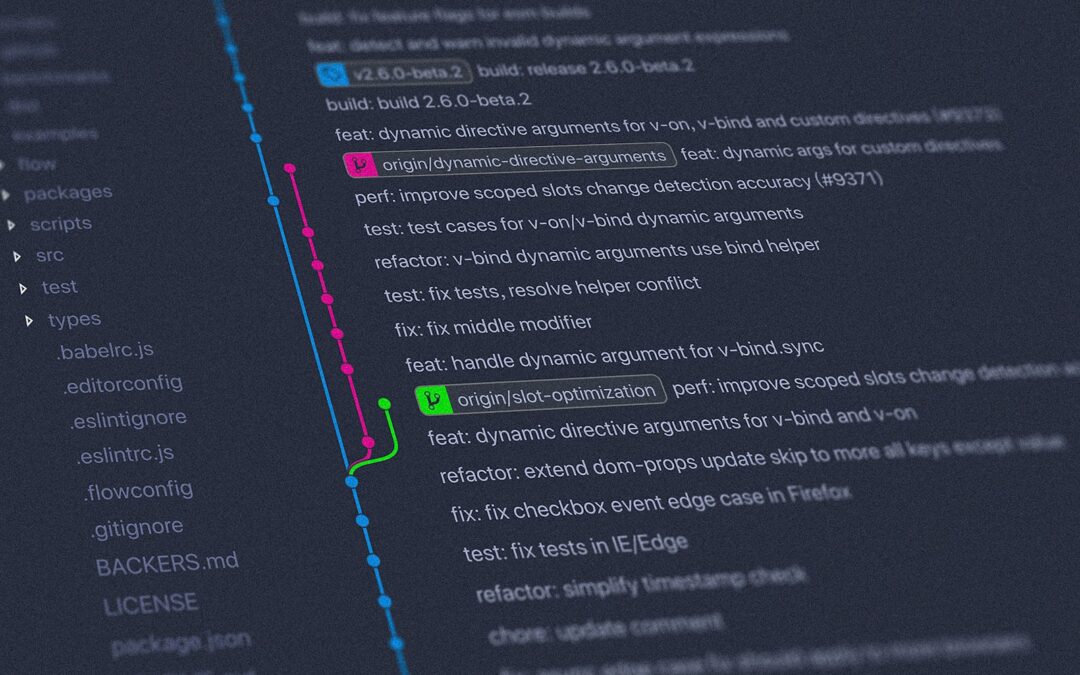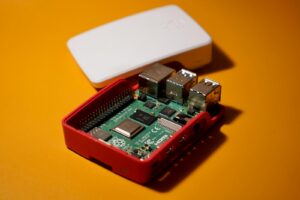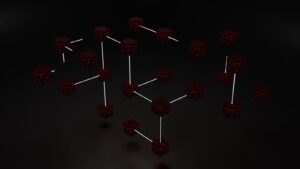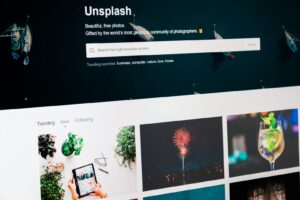Integrating IoT with Legacy Systems: Strategies for Scalability and Flexibility
The Importance of Scalability in IoT Integrations
Scalability and flexibility of IoT integrations are paramount for organizations looking to modernize their legacy IT infrastructure, particularly in rapidly developing regions like Saudi Arabia and the UAE. In cities such as Riyadh and Dubai, where technological innovation drives economic growth, the ability to scale IoT integrations seamlessly with existing systems is critical. Scalability ensures that as the volume of data and the number of connected devices increase, the infrastructure can handle the load without compromising performance or reliability.
To achieve scalability, organizations must adopt a modular approach to IoT integration. This involves breaking down the system into smaller, manageable components that can be upgraded or expanded independently. For instance, implementing microservices architecture allows different parts of the IoT system to scale independently based on demand. This modularity not only enhances scalability but also simplifies maintenance and upgrades, ensuring that the system can evolve without significant disruptions.
Moreover, leveraging cloud-based solutions can significantly enhance the scalability of IoT integrations. Cloud platforms provide on-demand resources that can be scaled up or down based on the needs of the organization. This flexibility is particularly beneficial in environments with fluctuating workloads, such as smart cities or large-scale industrial applications. By utilizing cloud services, businesses in Riyadh and Dubai can ensure that their IoT systems remain scalable and responsive to changing demands, supporting continuous growth and innovation.
Ensuring Flexibility in IoT Integrations
Flexibility in IoT integrations is equally crucial for organizations aiming to maintain compatibility with legacy IT infrastructure. In the dynamic business landscapes of Saudi Arabia and the UAE, where adaptability is key to staying competitive, flexible IoT systems allow organizations to integrate new technologies without overhauling their entire IT infrastructure. Flexibility ensures that IoT solutions can be customized and adjusted to meet specific business requirements, enabling organizations to respond quickly to market changes and technological advancements.
To achieve flexibility, organizations should prioritize interoperability between IoT devices and legacy systems. This involves using standard communication protocols and APIs that facilitate seamless data exchange between different components of the system. For example, implementing middleware solutions can act as a bridge between IoT devices and legacy systems, ensuring smooth data flow and compatibility. This approach not only enhances flexibility but also protects the investments made in existing infrastructure, maximizing the return on investment.
Furthermore, adopting a hybrid approach that combines on-premises and cloud-based solutions can enhance the flexibility of IoT integrations. This approach allows organizations to leverage the strengths of both environments, such as the control and security of on-premises systems and the scalability and cost-effectiveness of cloud services. In cities like Dubai and Riyadh, where businesses are at the forefront of technological innovation, a hybrid approach can provide the flexibility needed to integrate IoT with legacy systems while maintaining optimal performance and security.
Leveraging Advanced Technologies for Scalable and Flexible IoT Integrations
Integrating advanced technologies such as AI and blockchain can significantly enhance the scalability and flexibility of IoT integrations with legacy IT infrastructure. In progressive regions like Riyadh and Dubai, leveraging these technologies provides a competitive edge and supports seamless IoT integration. AI can enhance scalability by automating data processing and analysis, allowing the system to handle large volumes of data efficiently. Machine learning algorithms can optimize resource allocation and predict future demands, ensuring that the system scales effectively without manual intervention.
Blockchain technology, on the other hand, ensures secure and transparent data exchange between IoT devices and legacy systems. By creating an immutable ledger for data transactions, blockchain enhances trust and security in IoT integrations. This feature is particularly beneficial for applications that require high levels of data integrity and transparency, such as supply chain management and financial services. In Dubai, which is pioneering the adoption of blockchain across various sectors, integrating blockchain with IoT can enhance the flexibility and security of data exchange, supporting scalable and reliable IoT integrations.
Executive coaching services can play a crucial role in helping business leaders in Saudi Arabia and the UAE navigate the complexities of integrating advanced technologies with legacy IT infrastructure. By providing guidance on strategic planning and implementation, executive coaches equip leaders with the skills necessary to drive successful IoT initiatives. This leadership development fosters a culture of innovation and continuous improvement, ensuring that businesses remain at the forefront of technological advancements and IoT integration.
Strategic Approaches for Successful IoT Integrations
Developing a Comprehensive Strategy for IoT Integration
A well-defined strategy is essential for the successful integration of IoT systems with legacy IT infrastructure. Business leaders in Riyadh and Dubai must prioritize the development of comprehensive strategies that align with their organizational goals and technological capabilities. This involves conducting a thorough assessment of existing infrastructure, identifying integration challenges, and selecting appropriate technologies and solutions. By doing so, businesses can ensure that their IoT integrations are scalable, flexible, and aligned with their strategic objectives.
Key to this strategy is the integration of executive coaching services, which provide invaluable support in developing and executing these plans. Coaches offer insights into best practices for IoT integration, helping leaders navigate challenges and optimize their strategies. This support is particularly important in the fast-paced business environments of Saudi Arabia and the UAE, where staying ahead of technological trends is crucial for maintaining a competitive edge.
Additionally, collaboration between different departments and stakeholders is vital for the success of IoT integration initiatives. Cross-functional teams provide diverse perspectives and expertise, ensuring that all aspects of the system are addressed. This collaborative approach fosters innovation and ensures that implemented solutions are robust and effective, ultimately enhancing the scalability and flexibility of IoT integrations.
Continuous Improvement and Adaptation in IoT Systems
The dynamic nature of technology necessitates a commitment to continuous improvement and adaptation in IoT systems. Businesses in the UAE and Saudi Arabia must regularly review and update their IoT integration strategies to keep pace with evolving threats and opportunities. This involves staying informed about the latest advancements in AI, blockchain, and other relevant technologies, as well as adapting strategies to incorporate these innovations.
Continuous improvement also requires ongoing training and development for employees. Executive coaching services facilitate this by providing tailored training programs that enhance the skills and knowledge of business leaders and their teams. By fostering a culture of continuous learning, organizations ensure they remain agile and responsive to changes in the technological landscape. This adaptability is crucial for maintaining the scalability and flexibility of IoT integrations in the long term.
Moreover, businesses should leverage data analytics to assess the performance of their IoT integration strategies. Regular analysis of key performance indicators (KPIs) provides insights into the effectiveness of implemented strategies and identifies areas for improvement. By using data-driven insights to guide decision-making, businesses can continuously refine their IoT systems, ensuring optimal performance and resource utilization.
Building a Future-Ready IoT Infrastructure
As we look to the future, the integration of scalable and flexible IoT systems with legacy IT infrastructure will be essential for building a future-ready business environment. In the innovative landscapes of Riyadh and Dubai, where technology is a key driver of economic growth, businesses must prioritize these practices to stay competitive. Leveraging advanced technologies such as AI and blockchain, and investing in executive coaching services, organizations can develop robust strategies that enhance the scalability and flexibility of their IoT systems.
The focus on scalability and flexibility not only improves the efficiency and reliability of IoT integrations but also supports broader business goals such as operational efficiency and customer satisfaction. As businesses in Saudi Arabia and the UAE continue to embrace digital transformation, these practices will be critical for achieving long-term success. By fostering a culture of innovation and continuous improvement, organizations can navigate the complexities of IoT and lead the way in technological advancements.
In conclusion, ensuring the scalability and flexibility of IoT integrations with legacy IT infrastructure is crucial for business success. For businesses in Riyadh, Dubai, and beyond, adopting these practices is essential for maintaining a competitive advantage and driving sustainable growth. With the support of executive coaching services and the integration of advanced technologies, organizations can build secure and reliable IoT systems that support their strategic objectives and pave the way for future innovations.
—
#Scalability, #IoTIntegrations, #LegacyInfrastructure, #AI, #Blockchain, #ExecutiveCoaching, #Leadership, #DubaiTech, #RiyadhInnovation













